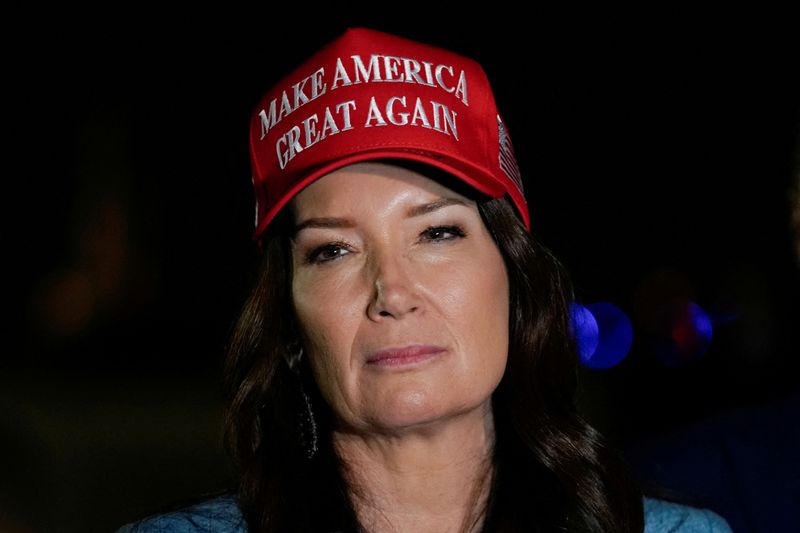By Leah Douglas
WASHINGTON (Reuters) -U.S. Agriculture Secretary Brooke Rollins said on Tuesday that there will be “no amnesty” for agricultural workers from the Trump administration’s efforts to deport all immigrants in the country illegally.
The farm sector has warned that mass deportation of farm workers would disrupt the U.S. food supply. The administration of President Donald Trump in June signaled it might pause raids on some farm worksites before reversing course.
Rollins said the administration wants a 100% American workforce and suggested some people receiving government aid could replace immigrant workers.
“Ultimately, the answer on this is automation, also some reform within the current governing structure. And then also, when you think about, there are 34 million able-bodied adults in our Medicaid program. There are plenty of workers in America,” she said at a press conference outside the Department of Agriculture headquarters.
Rollins also said at the press conference that the USDA will curb farmland purchases by “foreign adversaries,” including China, and terminate agreements and contracts with people and entities from those countries.
Asked about land already owned by Chinese-owned companies Syngenta and Smithfield Foods, Rollins said the administration is still considering its options.
“You’ll likely see an executive order on this very soon from the White House and we’ll be looking at multiple different authorities within the federal government to begin to claw that back,” Rollins said.
Arkansas in 2023 ordered Syngenta to sell 160 acres (65 hectares) of farmland under a state law barring some foreign entities from acquiring or holding land.
Twenty-six states limit or ban foreign businesses, governments or nationals from owning private farmland, and some of those laws have faced legal challenges, according to the National Agricultural Law Center.
Only about 3.4% of U.S. farmland is owned by foreign entities, and Canada owns the largest share, about 30%, according to the USDA.
Rollins said she will be a member of the Committee on Foreign Investment in the United States, or CFIUS, “as of this afternoon.” The interagency body reviews foreign investments in the U.S. for national security threats.
Bipartisan lawmakers have supported limits on ownership of farmland by foreign countries, citing national security concerns.
(Reporting by Leah DouglasEditing by Marguerita Choy)

